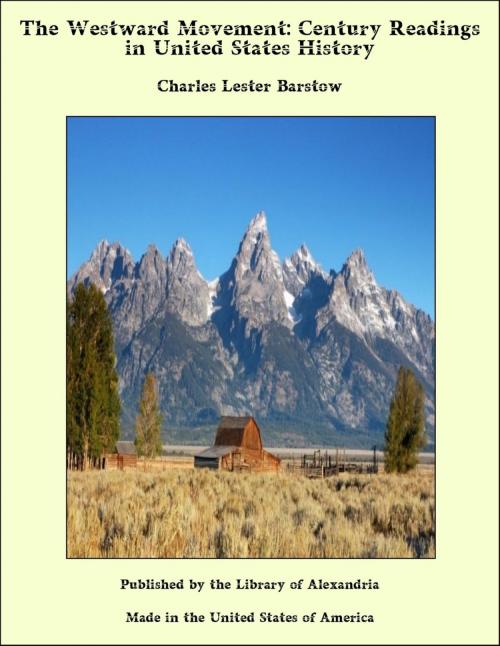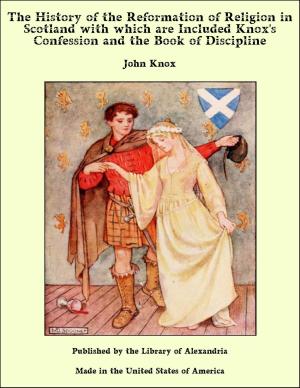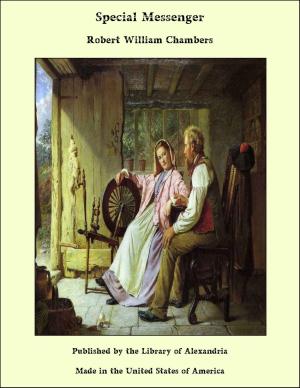The Westward Movement: Century Readings in United States History
Nonfiction, Religion & Spirituality, New Age, History, Fiction & Literature| Author: | Charles Lester Barstow | ISBN: | 9781465619839 |
| Publisher: | Library of Alexandria | Publication: | March 8, 2015 |
| Imprint: | Language: | English |
| Author: | Charles Lester Barstow |
| ISBN: | 9781465619839 |
| Publisher: | Library of Alexandria |
| Publication: | March 8, 2015 |
| Imprint: | |
| Language: | English |
In 1636 Thomas Hooker, the pastor of the church at Newton (now Cambridge), moved with his entire congregation to the banks of the Connecticut and founded the city of Hartford. Hooker did not like the way the Puritans acted in matters of government. He thought religious affairs and state affairs in the Massachusetts Bay Colony were bound too closely together. He thought also that more people ought to be allowed to vote than were allowed that privilege in the Puritan colony. Besides, was not the rich valley of the Connecticut a better place for homes than the rocky and barren hills around Boston? Hooker and his followers took their wives and children with them. They carried their household goods along and drove their cattle before them. As they moved overland through the roadless forests of Massachusetts, they took the first step in that great Westward Movement which continued for more than two hundred years and which did not come to an end until the far-off Pacific was reached. At the opening of the eighteenth century in almost every colony there were great areas of vacant land, and colonial growth for many years consisted mainly in bringing these lands under cultivation and filling them with people. This development necessarily took a westward course, for if the English colonists went far to the north they met the French, and if they went far to the south they met the Spanish. In New York the Westward Movement between 1700 and 1740 was very slow, because the progress of the English was opposed not only by the French, but also by powerful tribes of Iroquois Indians. But in the western part of Pennsylvania, Virginia, and North Carolina the Indians were less troublesome and there were as yet no French at all. So it was from Pennsylvania and from the southern colonies that the settlers first began to move in considerable numbers toward the West.
In 1636 Thomas Hooker, the pastor of the church at Newton (now Cambridge), moved with his entire congregation to the banks of the Connecticut and founded the city of Hartford. Hooker did not like the way the Puritans acted in matters of government. He thought religious affairs and state affairs in the Massachusetts Bay Colony were bound too closely together. He thought also that more people ought to be allowed to vote than were allowed that privilege in the Puritan colony. Besides, was not the rich valley of the Connecticut a better place for homes than the rocky and barren hills around Boston? Hooker and his followers took their wives and children with them. They carried their household goods along and drove their cattle before them. As they moved overland through the roadless forests of Massachusetts, they took the first step in that great Westward Movement which continued for more than two hundred years and which did not come to an end until the far-off Pacific was reached. At the opening of the eighteenth century in almost every colony there were great areas of vacant land, and colonial growth for many years consisted mainly in bringing these lands under cultivation and filling them with people. This development necessarily took a westward course, for if the English colonists went far to the north they met the French, and if they went far to the south they met the Spanish. In New York the Westward Movement between 1700 and 1740 was very slow, because the progress of the English was opposed not only by the French, but also by powerful tribes of Iroquois Indians. But in the western part of Pennsylvania, Virginia, and North Carolina the Indians were less troublesome and there were as yet no French at all. So it was from Pennsylvania and from the southern colonies that the settlers first began to move in considerable numbers toward the West.















